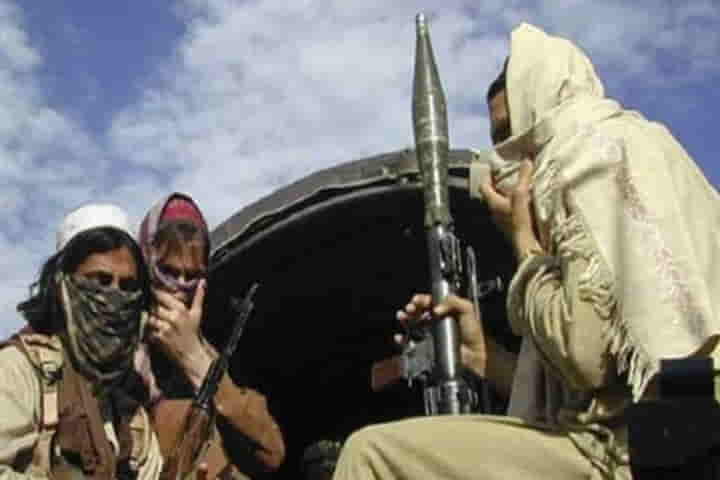There are multiple developments across Afghanistan, which are unfolding at a frenzied pace.
A preliminary analysis in the immediate aftermath of the Taliban occupying Kabul, reveals that the ‘might’ of the super power, the US, is shockingly exposed. The way the US troops, engaged on the Afghan soil for nearly two long decades and then hastily exited has been most disappointing, belying trust of the allies the world over. The poorly equipped Afghan troops were left in the lurch to fend for themselves at a time when they needed US and NATO support both militarily and politically.
Such betrayal apart, the US intelligence machinery particularly of the CIA stands exposed to nothing short of smithereens. Their capacity to draw up a proper contingency plan to make an honorable exit was never in place though the US was crying hoarse that it would withdraw troops before 31 August. To put things in historical perspective, it may be germane to mention about Sir Alexander Burnes, the Scotsman who turned a spy cum diplomat and cultivated as early as in 1839 to raise native friends to spy and report to the British empire about the activities in Afghanistan. It’s sad that he was assassinated in 1841, he was able to raise a number of sources from the traditional statecraft of human intelligence. If he could do it, why couldn’t a gigantic and affluent CIA marshal human, technological or electronic intelligence almost two centuries later when all the sophisticated means were available? The US administration may hold its intelligence arm to account for this lapse or else, one wouldn’t have seen the chaotic scene that the US left behind after Taliban assumed power. The Biden led leadership and more specifically, the Pentagon and the CIA have to answer that.
Talking about the security implications in the region, by the cake walk by the Taliban in re annexing Afghanistan, Pakistan is the first country which started distancing itself from the US, a trend it has already embarked upon, most likely due to Chinese pressure. It’s more vocal in anti US and brazenly pro-Taliban rhetoric. Other than its steadily increasing proximity to China, Russia and Iran, US has lost a longtime ally in Pakistan as the trust deficit, after Taliban’s ascendancy, is now complete. With China’s open support to Taliban and ‘recognition’ of its existence, China is set to reinforce its ties with Iran and Russia vis a vis Taliban ruled Afghanistan.
Pakistan was all along wary about Ashraf Ghani’s Presidentship due to his trust in India, now that he too exited from the scene and that too most cowardly, Pakistan has heaved a sigh of relief. It’s also trying to reach out to Afghan friends of India to wean them away. This is evident in the recent meeting between erstwhile Northern Alliance leaders, brothers of Ahmad Shah Masood, who were sworn enemies of Pakistan in the earlier Taliban regime but have become turncoats now. This was visible when they were seen in Islamabad on August 16 in the company of Pakistan foreign minister Shah Mahmood Qureshi. Perhaps India has to recalibrate its Afghan policy so as to remain significant in the Taliban scheme of things in Afghanistan. Under no circumstances, Pakistan should gain any upper hand to woo India’s proven Afghan friends and any such move needs to be neutralized.
As things unfold, Pakistan has started moving several extra miles to warm up to the new Taliban regime. Prime Minister Imran Khan at a very recent function, endorsed Taliban policies by saying it has unchained shackles from slavery from foreign rule. This statement was unbecoming of an Oxford educated, cricketer turned politician. A calculated restraint is certainly called for as caving in to Taliban mindset means Imran Khan and his country are, by implication supporting religious extremism and a regressive social and political rule.
There are apprehensions in quarters in India that Taliban might now focus on Kashmir and other targets in India. This looks a little far-fetched assessment at least for now. No doubt, ISIS, Al Qaeda activists have been freed by the Taliban and the foreign elements must be pressurizing Taliban leadership to take on Indian targets but they are aware of the Indian alertness. This said, the real peril lies in the role of Pakistan who will now try its best to use the Taliban to wage a proxy war in India. And that must be thwarted and preempted at any cost. Again, the intelligence agencies must be doubling up their vigilant efforts to foil such plans.
Among other countries in the region in South Asia, Bangladesh has noticed a large number of fundamentalist and extremist groups exhibiting extraordinary interest in the rise of Taliban. Many are thought to be trying to go to Afghanistan to firm up ties in furtherance of their terror agenda. Here too, Indo-Bangladesh Joint Counter Terror measures would help burst the plans before it’s too late. Situation either way is combustible because in India, Bangladesh, Indonesia, Maldives, Malaysia etc. one may see a new wave of religious radicalization which will be a serious detriment to the region. As it is, emboldened by the capture of power by Taliban, the statue of iconic Sikh ruler Maharaja Ranjit Singh by the militant zealots in Lahore barely 48 hours ago. This signals in Pakistan, supporters of Taliban have scant respect for an elected government and they may have a field day in running amok putting tranquil in jeopardy.
(The writer is a retired IPS officer, a security analyst and a former National Security Advisor to the Prime Minister of Mauritius. Views expressed are personal)
Also Read: After US plane incident, Russia makes open-ended offer to fly Afghans to other countries
Also Read: Poland, Lithuania erect barbed-wire fences to block Afghan refugee flood




















